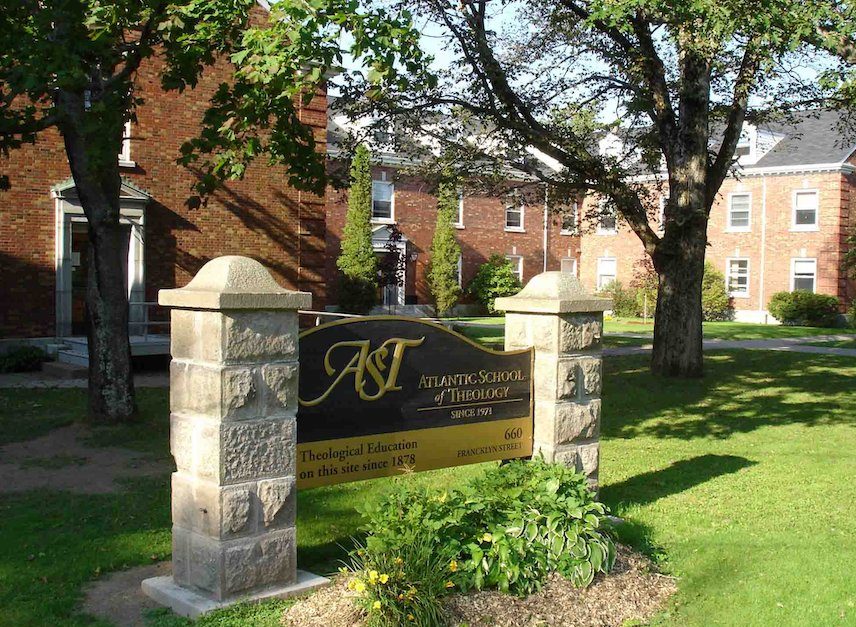Atlantic School of Theology (AST) has pledged to disallow non-disclosure agreements (NDAs) in instances of alleged sexual misconduct, discrimination or other forms of harassment — making it the first Canadian theological school to do so.
AST has become the fourth Canadian university to sign a pledge of this kind with the organization “Can’t Buy My Silence.” It joins Acadia University, University of King’s College and Columbia College on the list of universities that have made this commitment.
You may unsubscribe from any of our newsletters at any time.
“Can’t Buy My Silence” is a Canadian and British organization pushing for legislative change to stop the misuse of NDAs. The organization was founded by Zelda Perkins, the first woman to break an NDA with Harvey Weinstein, and Julie Macfarlane, a Canadian law professor formerly at the University of Windsor.
NDAs, Macfarlane explained, were first popularized in the Silicon Valley tech boom of the 1970s, when employers wanted to prevent employees from bringing new ideas and innovations to their competitors. Today, however, NDAs are used widely in civil settlements.
“Now [NDAs are] being used wherever there would be something that the organization or the institution, or the employer didn’t want other people to find out about, because it would be embarrassing,” said Macfarlane.
Rev. Heather McCance, president of AST, stated in a press release that signing the “Can’t Buy My Silence” pledge was simply “the right thing to do.”
“As a pastoral caregiver,” McCance said in an interview with Broadview, “it’s really clear to me that being free to talk about [sexual misconduct or harassment] situations is incredibly important for the healing of the person who’s gone through them.”
Not only did McCance feel that it was morally important for AST to sign the pledge, particularly as a faith-based institution, but she also said that, often, using an NDA “actually makes you look worse, not better.”
McCance’s reflection on the public perception of NDAs makes clear that the public is increasingly critical of NDA use in instances of sexual misconduct or discrimination. This is, in part, due to the work that Perkins and Macfarlane have been doing over the last two years.
More on Broadview:
“Can’t Buy My Silence” is focused on pushing for legislative change in Canada, the United Kingdom and elsewhere. Currently, Macfarlane said, a bill has been brought forward in a number of provinces, and has officially passed in Prince Edward Island, to limit the conditions under which an NDA can be enforceable.
Under this bill, an NDA concerning sexual misconduct, discrimination or harassment would only be enforceable if the victim was offered other ways to protect their own privacy, such as a one-sided confidentiality agreement, and still chose to sign an NDA. Furthermore, the NDA would only be enforceable if the victim was given legal advice, if the victim had a sound understanding of the NDA and if the NDA itself was time-limited, rather than requiring lifelong silence from the victim.
Along with the provincial bill, Macfarlane explained, there is a federal bill that would make it illegal for public money to be used to create or enforce an NDA concerning sexual misconduct, discrimination or harassment.
“I think there is a reasonable chance that might get passed by the Liberals before the next election, and it certainly has cross-party support,” Macfarlane said.
The legislative change that Macfarlane hopes to make is significantly helped by pledges from businesses and universities, she said, as they demonstrate to governments that many institutions are taking a stance against NDA misuse.
McCance said as AST discussed making the pledge, the recent news headlines about an NDA between a Christian college and a former professor loomed large.
John G. Stackhouse Jr. left Regent College in Vancouver in 2015 and took a new job at Crandall University in New Brunswick. Last year, several Crandall students made sexual harassment allegations against Stackhouse, and after a third-party investigation, his employment with Crandall was terminated. Former female students at Regent reported feeling unsurprised by this development, but the reason for Stackhouse’s departure from the Vancouver school is hidden within an NDA. Stackhouse disputes the investigation and is suing Crandall for wrongful dismissal.
For McCance, pledging not to use NDAs is not only about protecting individuals from harm and allowing them to speak on their experiences, but it is also about the importance of institutions holding themselves accountable.
She said that histories of abuse and cover-up in churches make it especially important for AST, as a faith-based institution, to sign the “Can’t Buy My Silence” pledge.
McCance said that AST’s founding churches — The United Church of Canada, the Roman Catholic Church and the Anglican Church of Canada — have all had cases in the past of “abusers misusing their positions and being moved from situation to situation to situation, and continuing their abuse historically.”
“It was very sad to think, at one point, that the churches, you know, were prodigious users of [NDAs],” said Macfarlane.
Today, however, McCance said that responses to the pledge from the founding churches were overwhelmingly positive.
AST is not the only faith-based institution in North America to take a stance against NDAs recently. The Southern Baptist Convention put forward a resolution last week to stop the use of NDAs that deter accountability and silence victims of discrimination or sexual misconduct. If this resolution passes, it will affect approximately 47,000 churches.
Taking a stance against NDA misuse “fits so perfectly within the spirit and the ethos of [religious] institutions,” Macfarlane said.
Resources
If you are feeling uneasy, uncomfortable, embarrassed or offended – these are a few warning signs that might point to sexual harassment. It can take the form of comments, behaviour, jokes, threats, messages, discriminatory action, and more. Defined as any unwelcome behaviour, sexual in nature, that affects you negatively, sexual harassment is against the law in Canada.
For more information, check out:
Canadian Mental Health Association
Hope for Wellness Hotline: 1-855-242-3310
***
Amarah Hasham-Steele is a Broadview summer intern, based in Toronto.














